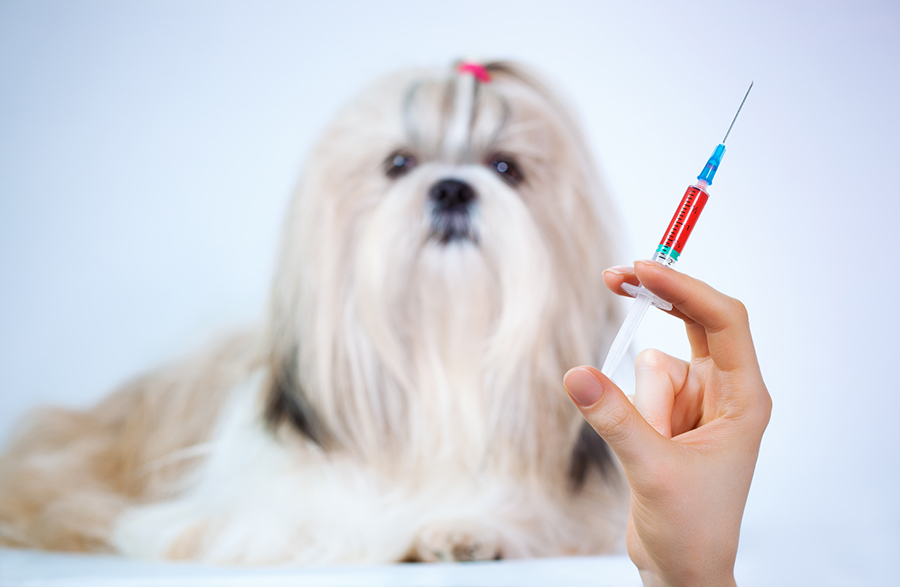Allergy Testing & Desensitisation
Is your pet forever scratching, biting and chewing at itself and consequently driving you mad? Are you worried about your pet constantly being on steroids to control itching? Well there may be an alternative for your pet; intra-dermal allergy testing.
Who performs the tests?
Prior to any skin testing, your pet will have a full clinical examination by one of our doctors. We will discuss your pet's allergic dermatitis in detail to help create a management strategy in addition to seeing if allergy testing is warranted.
Intra-dermal skin testing is performed by specialist Veterinary Dermatologist. An initial consultation is organised with the specialist at either our Midland or Drovers Hospitals so they can examine your pet and ask you important questions about you dog’s/cat’s skin problems in an attempt to narrow down the different possible allergens that could be affecting your pet.
What are the tests that are performed?
The allergy testing involves injecting a tiny amount of many common allergens under the skin of your pet. This procedure rarely causes your pet any discomfort at all. If your pet is allergic to any of the solutions used there will be a small amount of local swelling. This swelling is measured to determine the severity of the allergy to that substance. A list of substances that your pet is allergic to is created and then used to determine the best treatment for your pet.
So the test has been performed, what next?
Trying to reduce your pet’s contact with the substances on the allergen list is important (for example if your pet is allergic to ants you will need to try to eradicate these from your pet’s environment). If, however, the allergen cannot be removed from your pet’s environment (as is often the case with pollens etc) a series of desensitisation vaccinations may be prescribed. These vaccinations can help to reduce the severe reaction your pet has to the allergens and thereby reduce the itching.
What does desensitisation involve?
The referral vet attending your pet will go through the process in great detail. The response to the injections is gradual. A reduction in itching can take six to twelve months to become apparent. When you first start out you will need to come down to the clinic for the vaccinations however, sometimes owners are able to vaccinate their pets at home after a period of time.
Will my pet require any medications whilst on these vaccinations?
Again your attending veterinary dermatologist will determine the best treatment regime for you pet whilst undergoing the vaccinations. Additional treatment can range from anti-histamines to steroids and fatty acid supplements or even the use of soothing shampoos.
What is the success rate for this treatment?
The desensitisation vaccines decrease itchiness in 60-70% of pets. Sometimes, however, it does not bring about a perfect cure. Some pets will still itch but to a much lesser degree whilst others will have mild relapses during bad times of the year.
Are there any side effects of this treatment?
Adverse reactions are not common. The most common side effect is an increased itchiness in the first few hours after vaccination. Serious reactions occur in less than 1% of patients (these include vomiting and hyperactivity). If this occurs you must get your pet to a vet straight away.




